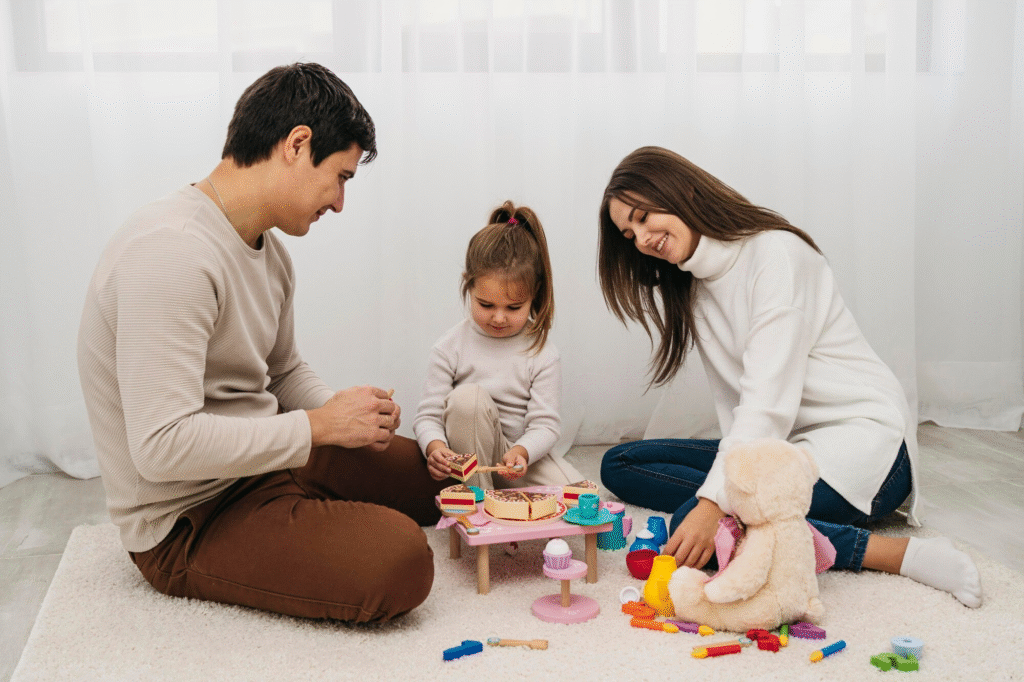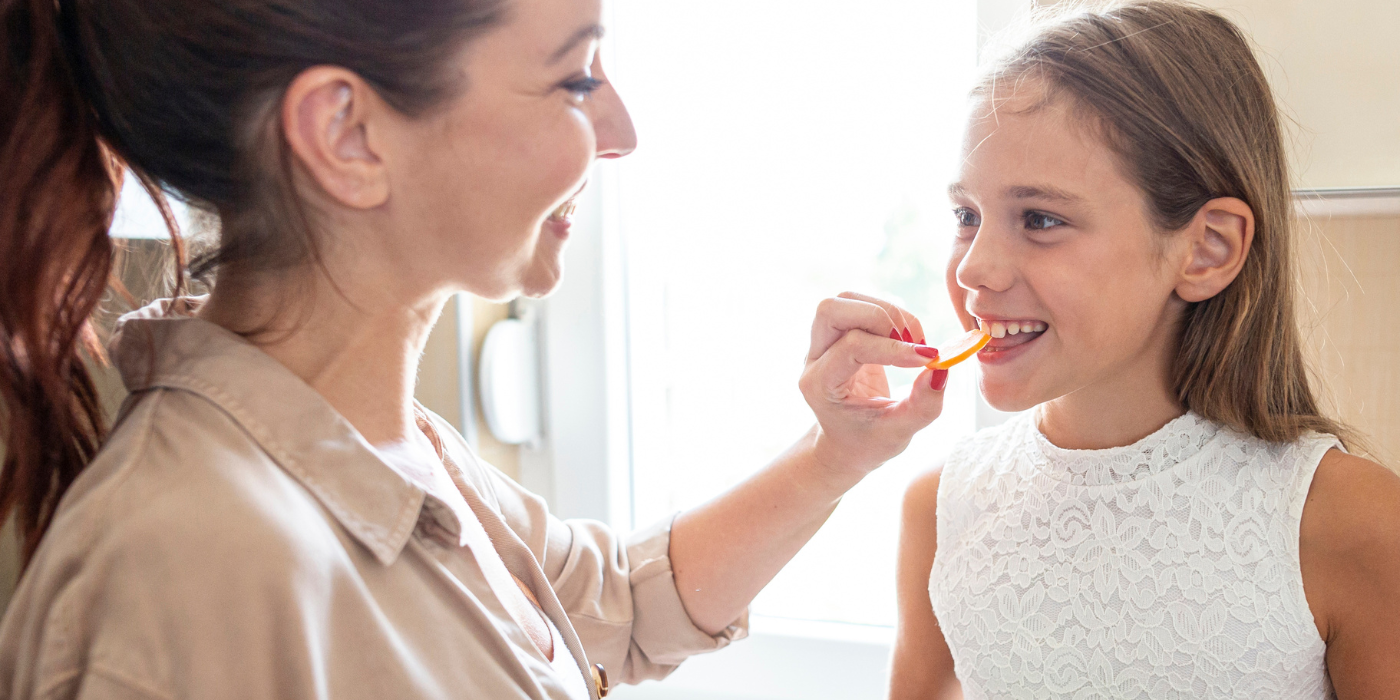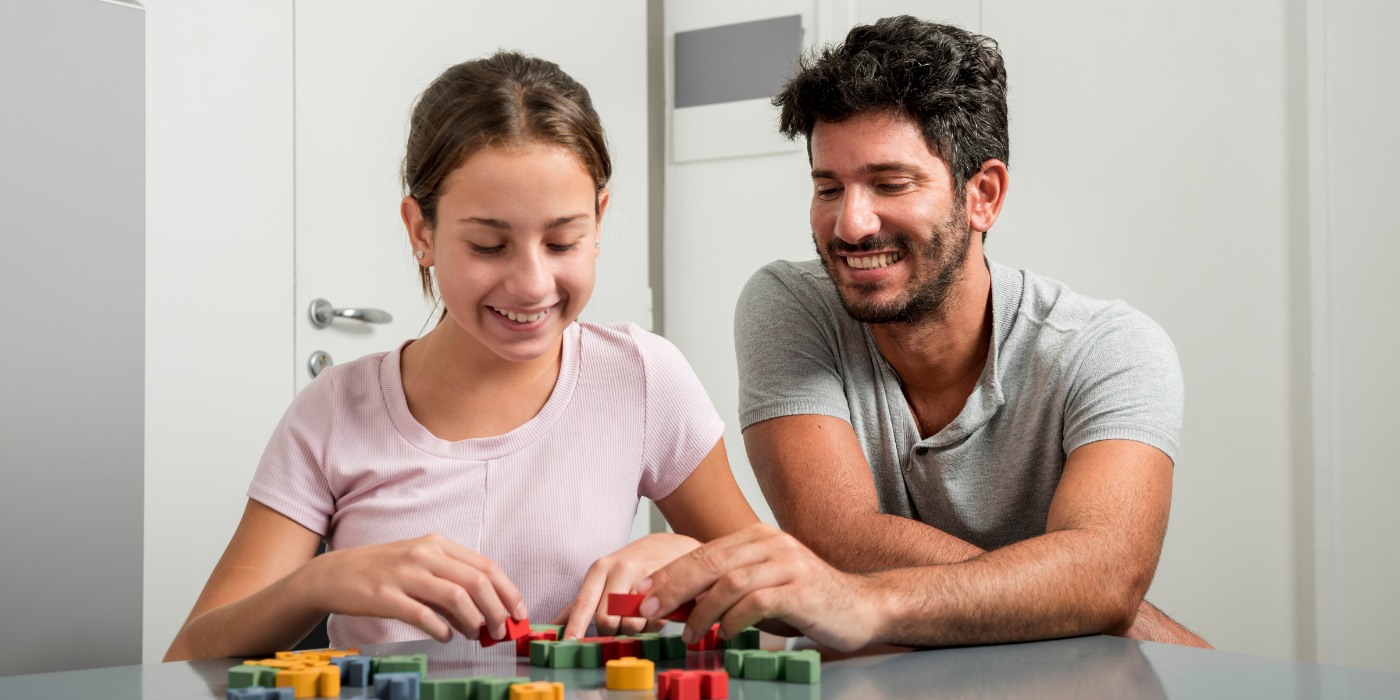After a long day of school filled with a lot of lessons, screen time might seem like the easiest way to help kids relax. However, excessive screen exposure—especially immediately after school—can lead to overstimulation, mood swings, poor sleep, and reduced focus.
Introducing screen-free activities for kids is one of the most effective ways to boost creativity, enhance focus, and support emotional well-being. When children engage in hands-on, mindful activities, they not only unwind but also learn essential life skills like patience, problem-solving, and emotional regulation.
This blog brings you 10 engaging, screen-free focus activities to help your child transition from school to home in a healthy, balanced way. These are simple, budget-friendly ideas that support concentration, creativity, and quality family time.
1. Create a Mini Art Station
Nothing sparks a child’s imagination quite like a blank canvas (or even just a blank sheet of paper).
Try this:
- Set up a corner with colored pencils, sketchbooks, stickers, and safe scissors.
- Introduce weekly themes like “Under the Sea” or “My Dream School.”
- Encourage progress over perfection—it’s about the fun, not the final product!
Art encourages mindfulness and fine motor skill development, making it a perfect post-school decompression activity.
2. Nature Walks with a Twist
Add a fun twist:
- Turn walks into scavenger hunts (“Find a red leaf”, “Spot a squirrel”, etc.)
- Let them collect rocks, leaves, or sticks to craft something later.
- Try “listening walks,” where kids pay attention to natural sounds around them.
Nature-based after-school focus games support mental clarity and offer a calm break from indoor noise and screens.
3. Build Something Together
Whether it’s a pillow fort or a LEGO masterpiece, building fuels problem-solving and creativity.
Ideas:
- Use blocks, cardboard boxes, or building kits.
- Challenge them with specific goals: “Can you build a bridge strong enough to hold your toy truck?”
- Rotate between independent builds and team builds to promote solo and collaborative skills.
Construction play helps children strengthen spatial awareness and critical thinking while having a blast.

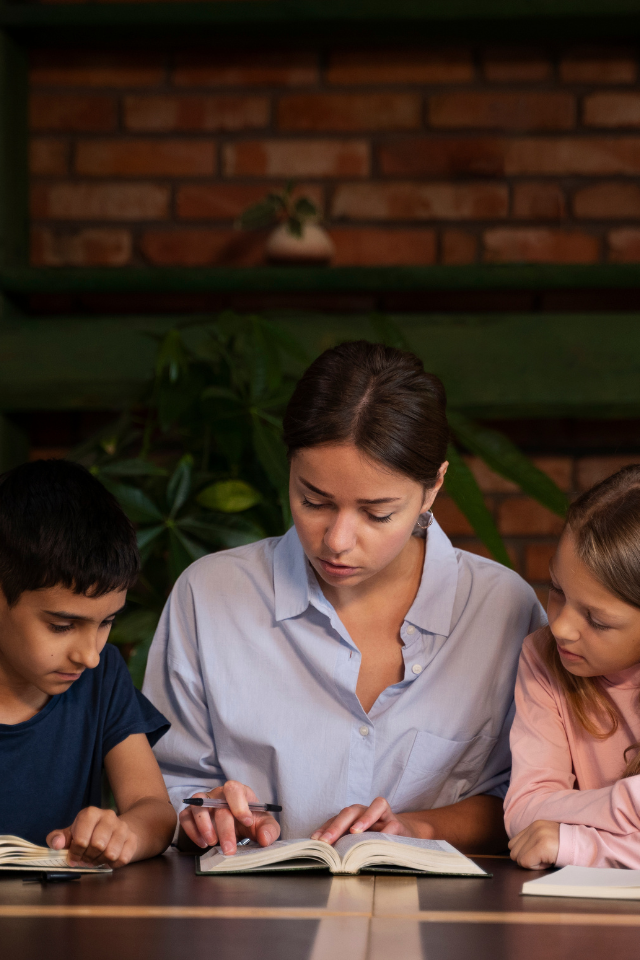
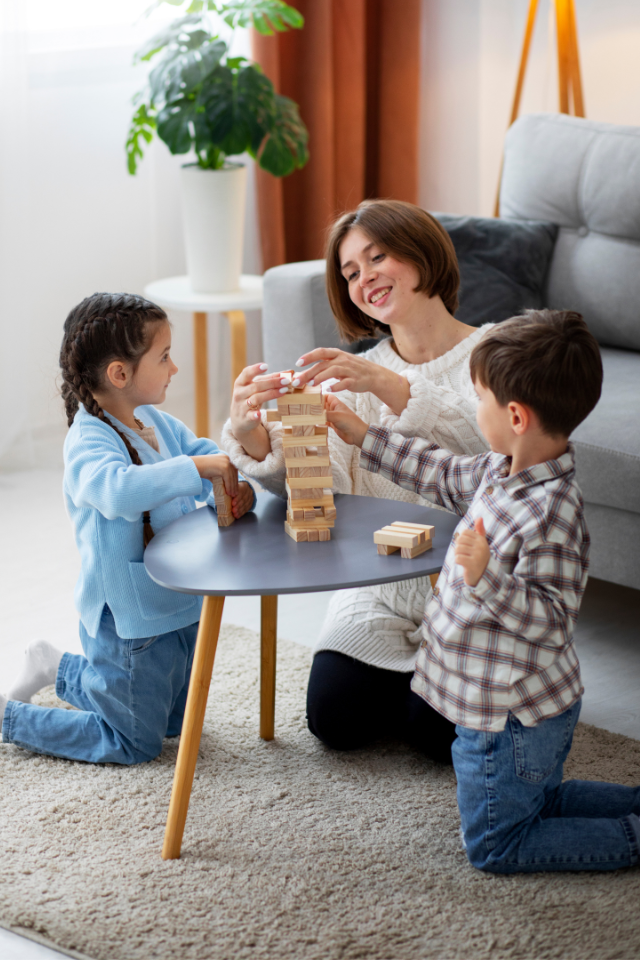
4. Story Time with a Twist
Kids love stories, but who says you have to read them from a book?
Story-focused activities:
- Create a “story jar” with random words or characters for your child to draw and invent a tale around.
- Take turns telling parts of a story with a family member.
- Use puppets, soft toys, or finger puppets to act it out.
This builds language skills, creativity, and imagination—no screens required!
5. Mindful Movement or Yoga
Mindfulness helps kids self-regulate and recharge their minds in a healthy way.
Simple yoga ideas:
- Explore yoga movements inspired by animals like Butterfly, Cat-Cow, and Downward Dog.
- Create a peaceful atmosphere by playing soft music and lowering the lights.
- Even 10 minutes of stretching or breathing can create a positive routine.
Mindful movement encourages self-awareness and emotional balance—essential after a stimulating school day.
6. Simple Cooking Projects
Cooking together is more than just a life skill—it’s a way to bond, teach math, and boost focus.
Kid-friendly recipes:
- No-bake energy balls
- Sandwich art (think smiley faces with fruits and veggies!)
- Homemade trail mix with measuring spoons
Let them pour, stir, and measure. It enhances fine motor skills and gives them a sense of accomplishment.
7. Puzzle Time
Puzzles sharpen concentration and problem-solving—plus, they’re incredibly satisfying to complete!
Options:
- Jigsaw puzzles (age-appropriate)
- Sudoku or logic puzzles for older kids
- DIY puzzles—cut a drawing into pieces and put it back together
This is one of the most powerful screen-free activities for kids to promote calm, focused thinking.
8. Gardening or Plant Care
Even if you don’t have a garden, a couple of pots on a balcony or windowsill will do.
How to involve kids:
- Let them water plants daily and track growth
- Start a mini herb garden together
- Decorate pots with paints or stickers
Caring for something teaches patience, responsibility, and provides sensory input—all great for grounding energy after school.
9. Board Games or Card Games
Board games are timeless for a reason—they help sharpen focus, enhance strategy, and build social connections.
Fun picks:
- Memory match games for younger kids
- Uno, Connect 4, or Guess Who
- Games like Chess or Checkers for older children
Make it a routine: 20–30 minutes of game time a few times a week instead of screens.
10. Quiet Reading Nook
Reading helps wind down an overstimulated mind. Create a cozy space that invites them in.
How to set it up:
- Use beanbags, fairy lights, and a basket of favorite books.
- Rotate books weekly to keep things fresh.
- Let your child lead the way—read together, take turns, or let them narrate the story to you.
Creating a reading ritual after school helps boost vocabulary, imagination, and relaxation.
Quick Recap: Benefits of Screen-Free Focus Activities
Choosing screen-free activities for kids after school brings amazing benefits:
- Enhances attention span and memory
- Encourages creativity and imagination
- Strengthens family bonds
- Reduces overstimulation and mood swings
- Supports physical and emotional well-being
By replacing screens with meaningful interactions, you’re helping your child develop a healthier, more balanced routine that they’ll carry into adulthood.
Conclusion: Try One Today!
In a digital world, it’s easy to default to screens. But with just a little planning, screen-free time after school can become something your child looks forward to every day.
These activities aren’t just alternatives—they’re opportunities for connection, learning, and joy. Start with one or two ideas this week, see what your child enjoys most, and build a sustainable, screen-light routine that supports their well-being.
Choose one of these fun ideas to do with your child today and watch how it brings you closer!
Loved the ideas? Share this blog with another parent or caregiver who might find it helpful!



